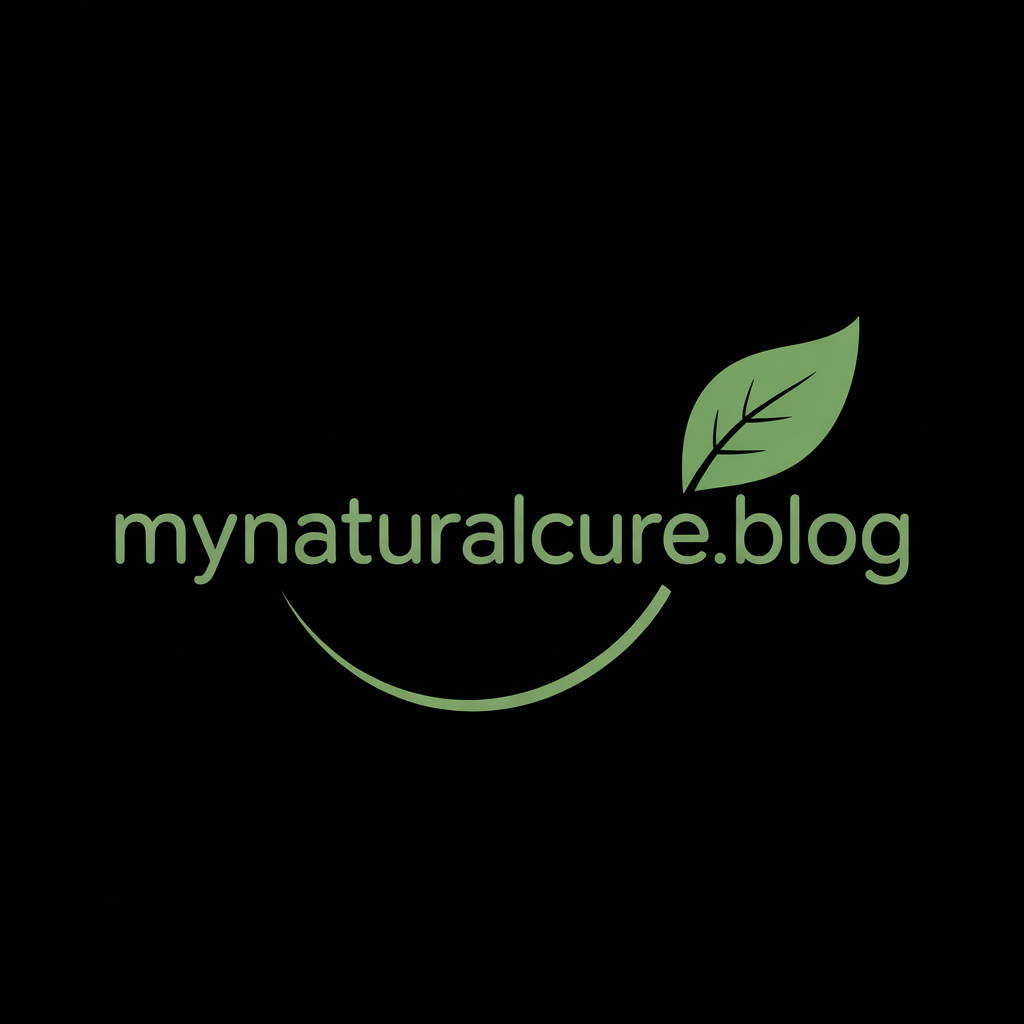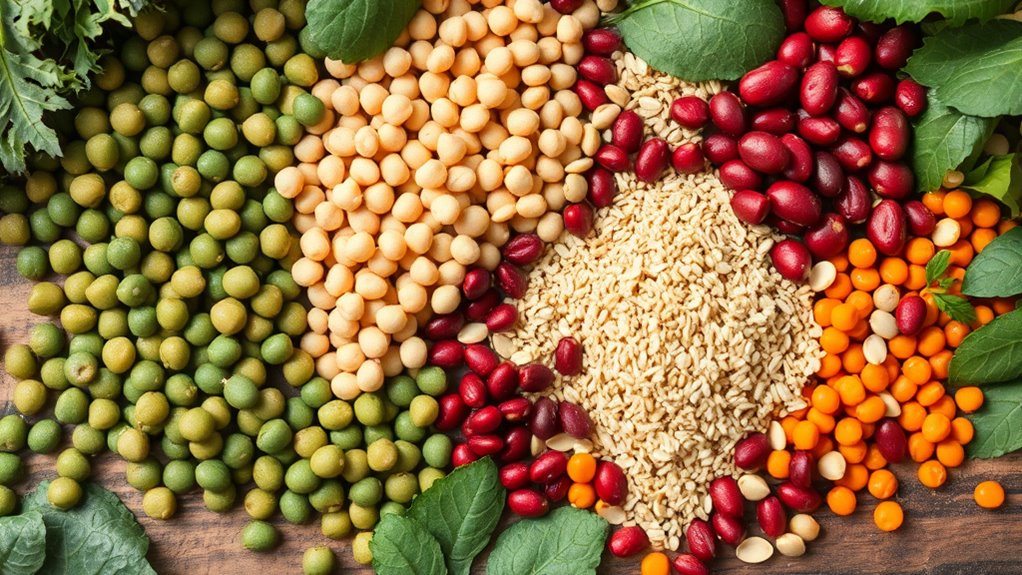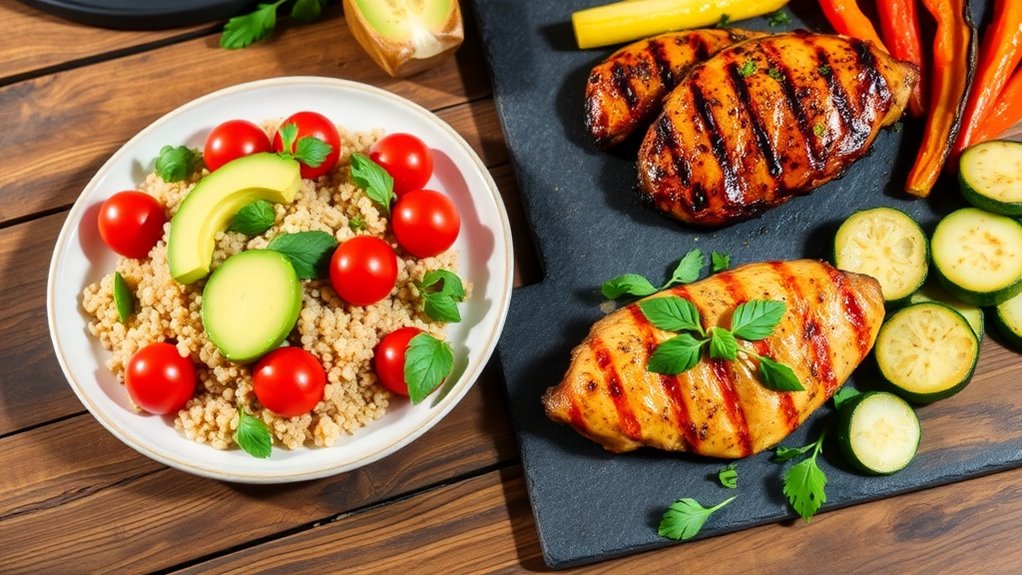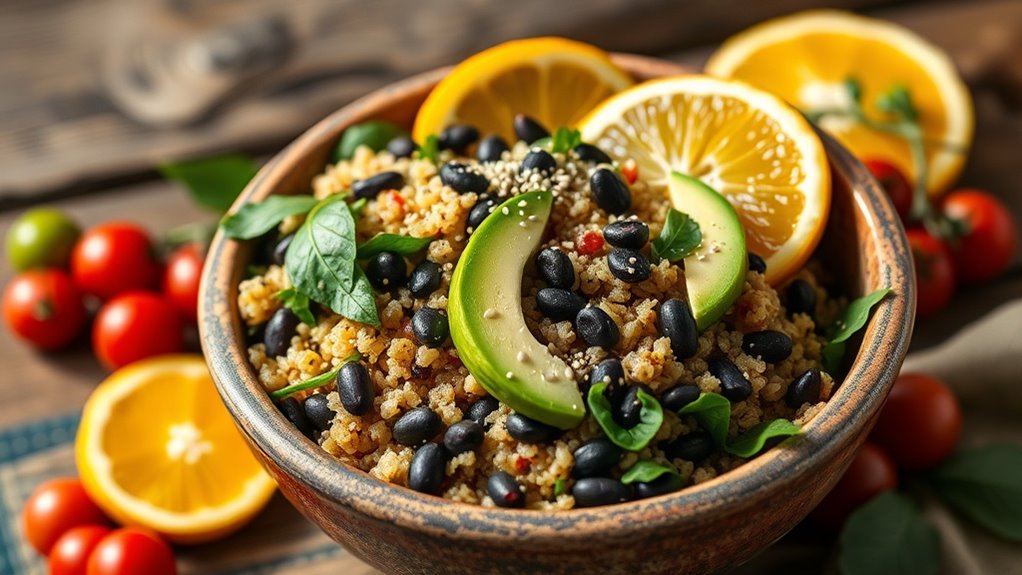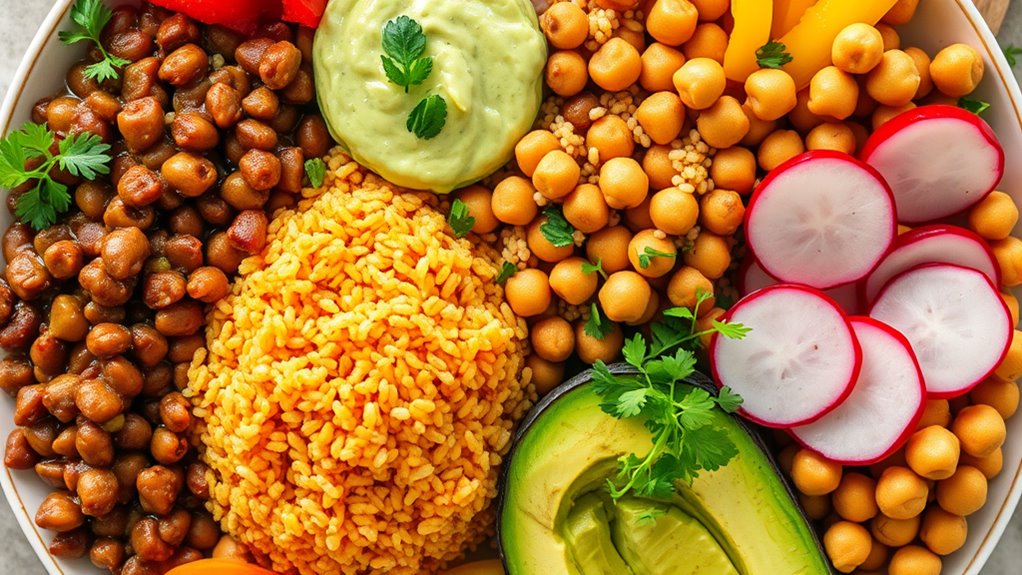Plant-Based Protein You’re Not Eating (But Should Be)
If you’re looking to boost your plant-based protein intake, don’t overlook lentils, quinoa, and edamame. Lentils offer 18 grams of protein per cooked cup and are rich in fiber. Quinoa is a complete protein, containing all nine essential amino acids. Edamame is a tasty snack, packing 8 grams of protein per cup and filled with vitamins. Adding nutritional yeast, chia seeds, and hemp hearts can enhance your meals, too. There’s much more to discover about these nutrient-rich options!
Lentil Power: The Unsung Hero of Plant Proteins
When it comes to plant-based proteins, lentils often don’t get the recognition they deserve. Packed with about 18 grams of protein per cooked cup, they’re a protein surprise for vegans and vegetarians alike.
Rich in fiber, vitamins, and minerals, lentils support heart health and digestion. Incorporating them into your meals can elevate your nutrient intake significantly while keeping it delicious and satisfying. Additionally, lentils are highly versatile for use in soups, salads, and veggie burgers, enabling a creative approach to nutrition.
The Mighty Quinoa: A Complete Protein Source
Although many grains are lacking in one or more essential amino acids, quinoa stands out as a complete protein source, making it a top choice for anyone seeking plant-based options.
This ancient grain contains all nine essential amino acids, which is rare for plant foods. Additionally, it’s rich in fiber, vitamins, and minerals, helping to enhance your overall nutrition and well-being. Quinoa is also gluten-free, making it a suitable option for those with gluten sensitivities.
Exploring Edamame: A Tasty Protein Snack
If you’re looking for a nutritious and delicious snack, edamame should be on your radar.
These young soybeans pack about 8 grams of protein per cup, making them an excellent plant-based option. They’re also rich in fiber, vitamins, and antioxidants, supporting overall health.
Simply steam or boil them, sprinkle with a bit of salt, and enjoy this tasty, protein-packed treat!
Nutritional Yeast: a Cheese-Like Flavor Packed With Protein
Nutritional yeast is a powerhouse of flavor and nutrition, offering a cheesy, savory taste that many people love. Packed with proteins, B vitamins, and antioxidants, it’s an excellent addition to various dishes, from popcorn to pasta. Just two tablespoons provide about 8 grams of protein, making it a fantastic option for plant-based diets. Embrace this unique ingredient to boost your meals! Additionally, nutritional yeast contains B-complex vitamins, including B12, which are crucial for vegetarians.
Chia Seeds: Tiny Superfood With Big Benefits
Chia seeds, often dubbed a tiny superfood, pack a powerful nutritional punch despite their small size.
They’re loaded with protein, fiber, omega-3 fatty acids, and essential minerals. Just two tablespoons provide a whopping 5 grams of protein and help keep you full longer. Additionally, they are packed with plant-based protein that makes them suitable for various dietary needs.
Add them to smoothies, oatmeal, or baked goods to boost your nutrient intake easily and deliciously.
Hemp Hearts: A Hairy Protein Superstar
While chia seeds offer impressive health benefits, hemp hearts also deserve the spotlight for their remarkable protein content. Packed with essential amino acids, these tiny powerhouses promote muscle growth, heart health, and digestion. Additionally, incorporating hemp hearts into your diet supports overall plant-based protein nutritional goals. Check out the comparison below:
| Nutrient | Hemp Hearts | Chia Seeds |
|---|---|---|
| Protein (g) | 10 | 4.7 |
| Omega-3 (g) | 6.1 | 5.1 |
| Fiber (g) | 1.2 | 34.4 |
